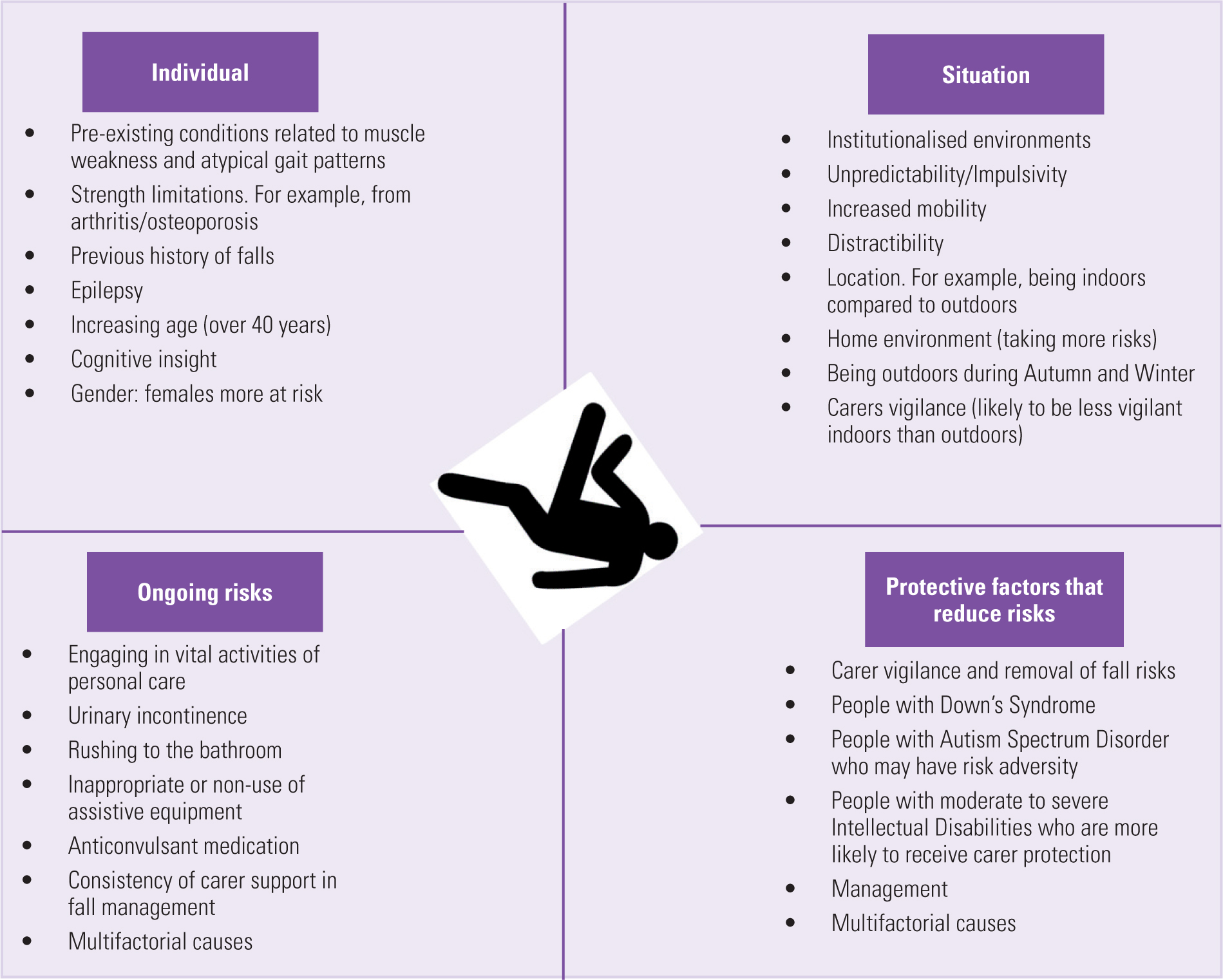10 Simple Techniques For Dementia Fall Risk
10 Simple Techniques For Dementia Fall Risk
Blog Article
The smart Trick of Dementia Fall Risk That Nobody is Talking About
Table of ContentsSee This Report on Dementia Fall RiskDementia Fall Risk for BeginnersThe Main Principles Of Dementia Fall Risk Dementia Fall Risk - TruthsThe smart Trick of Dementia Fall Risk That Nobody is Discussing
You could be anxious due to the fact that you've had an autumn prior to or due to the fact that you've seen you're starting to feel unstable on your feet. You may have observed modifications to your health, or just really feel like you're reducing a little. Whatever the reason, it isn't unusual to become cautious and lose self-confidence, and this can quit you doing the important things you used to do and make you feel more separated.If you've had a fall or you've started to feel unstable, inform your doctor even if you feel fine otherwise. Your doctor can check your balance and the way you walk to see if enhancements can be made. They might have the ability to refer you for a drops danger analysis or to the drops prevention solution.
This info can be gotten via interviews with the person, their caretakers, and a review of their clinical records. Begin by asking the specific regarding their history of falls, including the regularity and conditions of any current falls. Dementia Fall Risk. Ask about any kind of flexibility troubles they might experience, such as unstable or difficulty walking
Conduct a comprehensive testimonial of the individual's medications, paying particular interest to those recognized to boost the risk of drops, such as sedatives or medications that lower high blood pressure. Determine if they are taking several drugs or if there have been current adjustments in their drug program. Assess the person's home environment for potential threats that could increase the danger of drops, such as poor lighting, loose carpets, or absence of grab bars in the shower room.
Not known Details About Dementia Fall Risk
Guide the individual via the loss threat analysis type, describing each concern and taping their reactions precisely. Calculate the total threat rating based on the reactions offered in the assessment form.
This plan might consist of workout programs to boost strength and balance, medicine changes, home modifications, and references to various other experts as required. Routinely keep an eye on the person's progress and reassess their threat of drops as needed. Change the treatment strategy based upon adjustments in their wellness condition or home setting. Provide continuous education and support to promote security and lower the threat of falls in their daily living activities.
Lots of studies have shown that physical therapy can aid to reduce the danger of falling in adults ages 65 and older. In a brand-new research (that checked out drops risk in women ages 80 and older), scientists computed the financial impact of choosing physical treatment to stop falls, and they discovered that doing so conserves $2,144, consisting of all the hidden expenses of your time, discomfort, missed life occasions, and the dollars spent for services.
Some Known Questions About Dementia Fall Risk.
Examining your balance, strength, and strolling ability. A home safety and security analysis. Based on the learn this here now assessment results, your physical therapist will certainly develop a strategy that is tailored to your specific demands.
Older adults who have difficulty strolling and talking at the same time are at a greater threat of dropping. Dementia Fall Risk. To assist enhance your safety and security during day-to-day tasks, your physiotherapist might design a training program that will challenge you to keep standing and walking while you do an additional task. Instances consist of walking or standing while counting backward, having a conversation, or lugging her response a bag of grocery stores
Establish goals for increasing their physical task. Exercise much more to increase their stamina and balance. These programs usually are led by volunteer trainers.
Get This Report on Dementia Fall Risk

Measles, or rubeola, is a highly transmittable, acute viral infectious disease created by the measles infection. Some people consider measles as just a breakout and high temperature that cleans up in a couple of days; nonetheless, measles can create major health and wellness complications, particularly in kids younger than 5-years-old. The finest protection versus measles is the measles, mumps, and rubella (MMR) vaccine.
Autumns are a typical root cause of injury among older grownups. According to the CDC, in one year alone, fall-related injuries added to over $50 billion in clinical costs (Dementia Fall Risk). In healthcare facility setups, older adults are at specifically high danger of drops since their lowered mobility from being confined to a space or bed.
The 10-Second Trick For Dementia Fall Risk

She has no history of falls, her stride is consistent, and she nullifies with no problems. The previous nurse states that she calls for assistance to the washroom when she requires to go.
Examples of typical fall interventions/measures consist of: Making sure a client's necessary things are within reach. Putting the patient's bed rails up with the alarm on. Aiding an individual while they're rising from bed. Beyond understanding exactly how to make use of the Johns Hopkins Autumn Threat Assessment Tool, it is necessary that centers incorporate its use into a much more comprehensive loss prevention plan.
Report this page